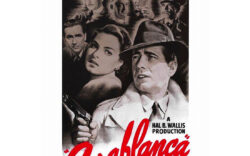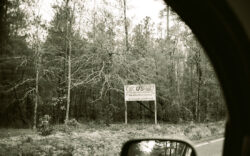Editor’s Note: This Pub Notes is reprinted from the Mar. 19, 2008 Flagpole.
As talk of economic recession grows, I am reminded of the stories I heard growing up. My parents and their generation came of age during hard times. For the rest of the country, those hard times began with the stock market crash of 1929, when the high-rolling Roaring Twenties came to an end. Here in the South, the bottom fell out almost a decade before, when the boll weevil arrived and ate our one-crop cotton economy. The banks foreclosed on the farms, and then the banks failed, along with most businesses; the economy ground to a halt. By the time stockbrokers were defenestrating themselves in New York, most Georgians had learned to live without cash, let alone stocks and bonds.
Of course, at that time the South was mostly rural country and small towns. People could at least grow something to eat. Cornbread, turnip greens, molasses and fatback—what we call soul food—got them through. Money? Forget about it.
My mother taught high school English. She and her teacher friends stopped by the drug store after class. The school board had no money to pay their salaries, so it issued scrip, sort of an IOU, and they used that scrip to buy a chocolate milk with a scoop of vanilla ice cream floating in it. Because the ice cream looked like a cotton boll, they christened their favorite drink the Boll Weevil. At least they had that English-teacher irony, proving the value of education even in hard times.
By the time I was in high school, our history and civics books assured us that the Depression could never happen again, thanks to the safeguards put in place during President Franklin D. Roosevelt’s New Deal. All that bad stuff happened in the ‘20s and ‘30s because people lacked government protection such as the Federal Deposit Insurance Corporation, the Federal Housing Administration, Social Security, etc.
The authors of those books could never have foreseen or believed that we could ever have a President and a Congress intent on tearing down those safeguards and dismantling the national government at home while fighting a financially and morally ruinous war abroad, and at the same time drastically cutting taxes and putting our nation massively in debt to the communist Chineses.
By contrast with the present crowd, President Jimmy Carter looks better and better. In the late ‘70s he tried to use his leadership to decrease our dependence on foreign oil. He pushed for more fuel-efficient cars and for turning down the thermostat and putting on a sweater. Suppose we had taken him seriously. That was 30 years ago! Think where we’d be right now if we had accepted Carter’s call to discipline.
We didn’t. We elected Ronald Reagan because he assured us that those sacrifices were unnecessary. Go on, turn up the thermostat; take off that tacky sweater; buy a new V-8; we’re Americans. It’s all good. If we have to fight a war for oil someday, we’ll just be patriotic and do what we have to do.
Plato pointed out that what’s at stake is the difference between the pastry cook and the physician. An ill child, if offered the choice, would rather have a sweet pastry than the bad-tasting medicine that would restore health. The country jumped at the chance to be sweet-talked by the upbeat Ronald Reagan instead of taking the medicine prescribed by Jimmy Carter. We’re still on that track, believing in spite of the evidence that we can still have our war and our tax cuts and that we don’t have to worry about all our out-of-work, uninsured citizens because such losers are beneath our concern. Our government can rebuild Iraq, but not America.
It will take strong medicine to help us recover from our illness. Here’s hoping we’ve got the national will to fight back from the ruin that present policies have brought. It’s time for straight talk and strong medicine. Obama or Clinton, we must demand that they get our country out of this war and into the mode of dealing with our own serious problems of health care, jobs, education, transportation and equality of opportunity.
The citizens of Enterprise, AL, erected a monument to the boll weevil because it taught them never again to rely on a one-crop economy. It’s time for us to do the same for OPEC and kick the dependence that addicts us to an economy based on oil and war.
Like what you just read? Support Flagpole by making a donation today. Every dollar you give helps fund our ongoing mission to provide Athens with quality, independent journalism.









